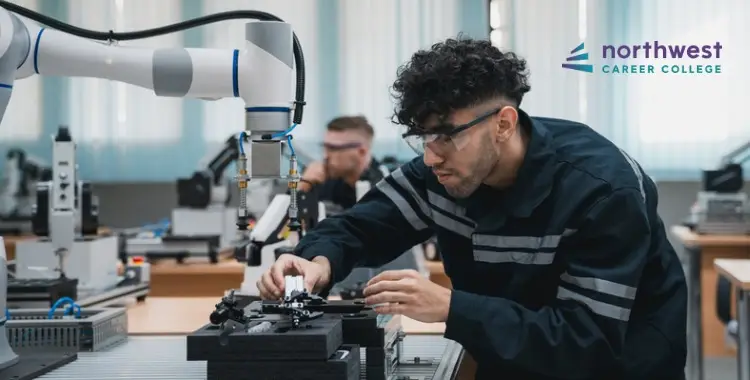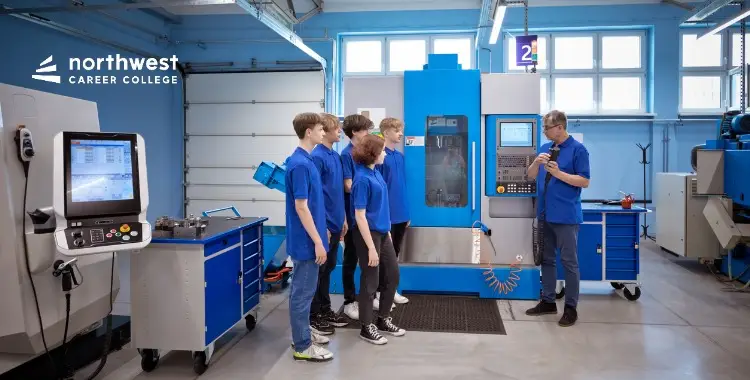Trade School vs. Bootcamp: Return on Investment
- Trade School
- April 2, 2025
- 230 views
- 4 min read

Most people consider trade schools and boot camps when weighing their education options. Both provide focused, job-ready skills; however, the return on investment may differ depending on a person’s goals and career path. This article explains what one may expect from trade schools and boot camps regarding cost, time, and benefits.
Table of Contents
Education Cost
Perhaps the very first points of comparison between trade schools and boot camps can be made on the levels of cost involved. Trade schools often offer more structured education in specified fields, including healthcare, automotive repairs, and skilled trades such as plumbing and electrical work. Such programs range from a few months to two years and can be relatively inexpensive at a few thousand dollars up to $30,000 or more, depending on the program.
Second, while most boot camps last only a few weeks to a few months, attending one usually ranges from $7,000 to $20,000. Additionally, boot camps target focused fields in technology, such as coding, web development, and data analysis.
While trade schools might be costlier than boot camps, they have a broader range of career options and, in some cases, even provide more hands-on training.
Time to completion
Another consideration is the duration of the entire program. Trade school takes longer, often taking one or two years of study. With this extended time, students can delve deeper into their field and build a solid foundation of knowledge and experience.
That being said, boot camps are meant to be fast. You could take off with a boot camp in as little as 12 weeks. This makes boot camps attractive for those who want to gain skills and enter the job market quickly.
While boot camps may allow you to start your career sooner, trade schools will provide more comprehensive training over a more extended period.
Job Prospects and Career Growth
Indeed, both trade schools and boot camps have job-ready skills; however, the difference may come in after-job prospects. Graduates from trade school most often go into the fields of health care, skilled trades, or dental assisting. These are careers that are always sought after and offer good job security. Many of these careers often come hand in hand with such benefits as a stable pay rate, health insurance, and room to grow.
Many boot camp graduates look for technology-related jobs. There’s a high demand for tech workers, although these jobs can sometimes be more competitive, and the fast pace of the technology industry means skills need constant updating.
One key point is that trade school graduates often enter fields with a long-standing need for skilled workers. Jobs like electricians, medical assistants, and dental hygienists will likely stay, offering a stable career path.
Practical Experience
Trade schools generally provide more hands-on experience than boot camps. Many trade school programs include internships or apprenticeships, which means students can practice their skills in an operational environment. This experience can be invaluable in job applications, as most employers favor practical experience.
Bootcamps also provide projects and exercises but may not be able to guarantee the same amount of on-the-job training as some other courses, particularly those courses that deal with skills that must be certified or licensed.
Potential for earning
Earning potential after attending a trade school or boot camp varies depending on the field. Those graduating from a vocational school can assume stable incomes. Some positions, such as dental assistants and business administrators, can average $40,000 to $60,000 annually.
Tech graduates who come out of boot camp can initiate their careers with higher salaries, ranging from $50,000 to $90,000 at the entry-level. Again, this depends upon where you are and, accordingly, the demand for technological jobs and keeping up progressively with trends and new technologies.
Conclusion
Northwest Career College offers various trade school programs designed to get you started in highly in-demand careers, whether in healthcare or business administration. Each of our hands-on training programs is committed to helping students create a solid base of skills that will serve them long after graduation.




